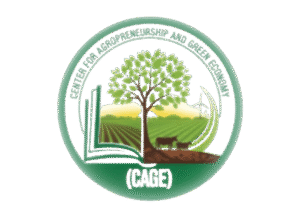

Nigeria is set to validate its revised National Gender Policy in Agriculture later this month, marking a significant step toward building a more inclusive and equitable food system.
Speaking at the close of the North-East Zonal Consultative Forum in Gombe on Tuesday, National Consultant for the policy review, Nkiruka Okonkwo, explained that the revision reflects current realities and ensures that no group is left behind in agricultural development.
The forum was organised by ActionAid Nigeria, the Federal Ministry of Agriculture and Food Security, Small Scale Women Farmers of Nigeria, with support from AGRA, GIZ, and CARE.
“The revised policy recognises four major categories of stakeholders—men, women, young people, and persons with disabilities. It is structured to give ownership to farmers and local communities, not just policymakers in Abuja,” Okonkwo said.
She recalled that the NGPA journey began in 2014, was validated in 2019, and has since guided reforms in agriculture. In April 2021, the Federal Ministry of Agriculture inaugurated the National Gender Steering Committee to drive implementation, with ActionAid Nigeria serving as chair.
Okonkwo noted that the 2025 review introduces an institutional framework establishing Gender Steering Committees at national, state, local government, and ward levels.
“This bottom-up approach ensures inclusivity and accountability. For the first time, farmers, cooperatives, civil society organisations, and persons with disabilities are actively shaping the policy,” she said.
According to her, the review will culminate in a National Validation in Abuja on October 20, followed by submission to the Federal Executive Council (FEC) for approval ahead of the National Council on Agriculture in Kaduna in November 2025.
The revised policy also includes a 2025–2030 Strategic Action Plan, requiring states to create a gender budget line in agriculture and promoting stronger public-private partnerships.
“What makes this policy different is that it is not designed to sit on shelves. We are adopting a strategic, participatory approach so that interventions benefit everyone, drive food systems transformation, and empower vulnerable groups,” Okonkwo stressed. She added that Nigeria’s agriculture must not only provide food but also generate jobs, reduce poverty, and drive economic growth.
ActionAid Nigeria, as Chair of the Steering Committee for the Implementation of the NGPA, reaffirmed its commitment to ensuring that women, young people, and persons with disabilities are not left behind in Nigeria’s agricultural sector.
Speaking at the forum, ActionAid Nigeria’s Food and Agriculture Programme Advisor, Blessing Akhile, said the event was an important opportunity to strengthen inclusivity in food systems.
“This forum ensures that the voices of smallholder women farmers, young people, and persons with disabilities are meaningfully captured in shaping a more inclusive and equitable food system,” Akhile said. She noted that since its launch in October 2019, the NGPA has helped close gender gaps, improve access to resources, and enhance productivity across agricultural value chains.
“These efforts have contributed to food security, poverty reduction, and improved livelihoods for millions of Nigerians. Yet, as our food systems evolve, new challenges have emerged, making this review both timely and necessary,” she added.
Akhile commended the Federal Ministry of Agriculture and Food Security for working closely with the National Gender Steering Committee, chaired by ActionAid, to implement the policy. She also acknowledged support from partners, including AGRA, GIZ, and CARE, describing their contributions as “invaluable in strengthening our collective efforts to build a food system that is just, inclusive, and resilient.”
Expressing confidence in the consultative process, Akhile said, “With the insights and commitment of everyone here, I am confident this review process will deliver a stronger, more inclusive policy that responds to vulnerable groups while enhancing fair participation in agriculture for national development.”
AGRA representative Esther Ibrahim highlighted her organisation’s commitment to food systems transformation.
“In the morning, my supervisor, Ms Juliette, spoke about why we are participating in this programme. It’s a pleasure to support the validation of the policy in this zone. Since June, this journey has progressed across Nigeria. This is the last zone before the national validation. For us at AGRA, gender is critical for food systems transformation,” she said.
Gombe State Commissioner for Agriculture, Animal Husbandry and Cooperatives, Dr Barnabas Malle, lauded the initiative.
“Gombe is an agrarian state, and 85 percent of the population is involved in agriculture. The governor has been supporting women in agriculture, men, persons with disabilities, and school children,” Malle said.
Assuring the government’s readiness to implement the gender policy, Malle added, “The most important thing is to come up with the policy. Once it is finalised, the governor will ensure it’s domesticated. Already, women are involved in agriculture; during the last distribution of inputs, they received supplies such as fertilisers.”
On September 1o, 2025, PUNCH Online reported that the Federal Ministry of Agriculture and Food Security, in collaboration with ActionAid Nigeria, held a North Central zonal consultative forum for the review of the National Gender Policy in Agriculture and its Strategic Plan of Action (2025–2030).
The forum, which was organised by ActionAid Nigeria with support from AGRA, GIZ and Care International, brought together stakeholders from government, civil society, women farmers’ groups, youth networks and development partners to Lafia, the Nasarawa State capital, where it was held.